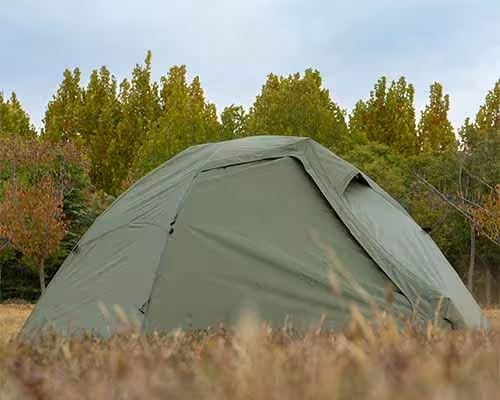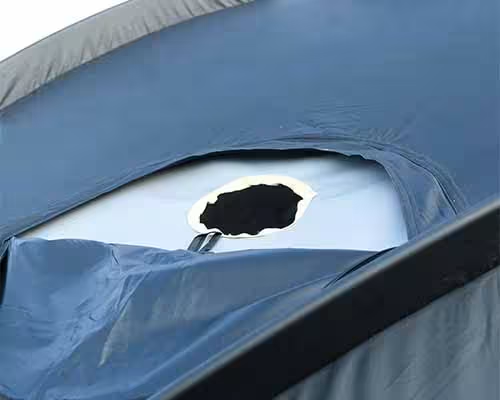Table of Contents
- Introduction: Defining the Winter Camping Challenge
- Understanding the True 4-Season Tent
- Decoding the ‘Hot Tent’ System
- Head-to-Head Comparison: Hot Tent vs. 4-Season Tent
- Safety First: Using a Stove in Your Winter Tent
- The Best Choice for Specific Winter Camping Scenarios
- Essential Features for Any Best Tent for Winter Camping
- Final Verdict: Making Your Decision
Introduction
When planning a cold-weather expedition, the question of which is the best tent for winter camping quickly becomes a complex debate: shelter or heat? The distinction between a traditional four-season tent and a modern “hot tent” is fundamental. A four-season tent prioritizes maximum protection from the elements, while a hot tent integrates a safe, internal heat source. Your choice hinges on your specific camping style—are you tackling harsh alpine winds or settling into a cozy, long-term base camp? Understanding this core difference is the first step in finding the right shelter for warmth and safety.

Understanding the True 4-Season Tent
Primary Focus: Structural Integrity and Weather Resistance
The true 4-Season tent is an engineering marvel designed with one primary focus: structural integrity and weather resistance. These tents are built to withstand heavy snow loads and fierce alpine winds. Key materials typically include high-quality, lightweight aluminum poles and reinforced, low-profile dome designs. They often have less mesh and more fabric coverage than their 3-season counterparts to block wind-driven snow and retain heat.

Is Stove Use Recommended in Traditional 4-Season Tents?
Critically, these tents are not designed for stoves. The materials are often lightweight, synthetic nylon or polyester with high flammability, meaning stove use is strongly discouraged due to the extreme fire risk.
Decoding the ‘Hot Tent’ System
Essential Feature: The Stove Jack (Chimney Port)
The ‘Hot Tent’ system is defined by its ability to safely house a portable wood stove, offering unmatched internal heating. The essential feature that makes this possible is the stove jack—a fire-resistant, circular port for the chimney pipe. Hot tents are often made from durable, breathable materials like cotton canvas or poly-cotton blends. While heavier than synthetic 4-season tents, these materials are more resistant to sparks and offer superior insulation for base camping. The stove dramatically reduces internal condensation and allows campers to dry gear quickly.
Head-to-Head Comparison: Hot Tent vs. 4-Season Tent
| Feature | True 4-Season Tent (Example: MSR Access) | Hot Tent (Example: Canvas Wall Tent) |
|---|---|---|
| Primary Strength | Structural Strength, Weather Protection | Internal Heat, Comfort |
| Stove Capability | No (High Fire Risk) | Yes (Requires Stove Jack) |
| Weight & Portability | Lighter, Better for Backpacking | Heavier, Best for Car Camping/Base Camp |
| Condensation Management | Excellent Ventilation Design | Requires Stove Heat and Vents |
| Wind & Snow Load | Superior in High Alpine/Exposure | Good, but shape is crucial (teepee/bell). ) |
Safety First: Using a Stove in Your Winter Tent
Carbon Monoxide (CO) Risk and Ventilation Protocols
Safety is paramount. The primary danger of using a stove inside a tent is carbon monoxide (CO) poisoning. Always use a dedicated CO detector inside your tent and ensure adequate ventilation protocols are in place.
Fireproof Tent Jack Installation and Positioning
Proper fireproof tent jack installation is mandatory; the stovepipemust not touch any flammable tent material. Best practices include operating the stove in a well-ventilated area and never leaving it unattended while burning. For more on CO safety, check a reputable source like the CDC’s Carbon Monoxide FAQs.
The Best Choice for Specific Winter Camping Scenarios
Best for Alpine Expeditions and High Winds
If your trip involves alpine expeditions above the treeline or extreme high winds, a traditional, structurally reinforced 4-Season tent is the safest choice.
Best for Cold-Weather Base Camping and Extended Stays
For cold-weather base camping or extended stays where comfort is a priority, the hot tent provides a superior experience.
Best for Lightweight Winter Backpacking
For lightweight winter backpacking, the minimal weight of a quality synthetic 4-season tent combined with an excellent sleep system remains the pragmatic choice.
Essential Features for Any Best Tent for Winter Camping
Durability of Pole Material (Aluminum over Fiberglass)
Regardless of your choice, any best tent for winter camping must meet certain durability standards. Look for high-quality, rigid pole material, preferably aluminum, which offers superior strength over fiberglass in extreme cold.
Full Coverage Rainfly and Reinforced Guy Points
A full-coverage rainfly and reinforced guy points are crucial for managing snow loads and preventing tent collapse in blizzards. This attention to detail defines a reliable winter shelter. Shop our collection of winter tents here.
Making Your Decision
The ultimate choice depends on your priorities: a 4-season tent offers maximum resilience against nature, while a hot tent provides maximum comfort and utility through heat. Both can be the best tent for winter camping, but only one is best for your winter camping trip.
FAQ
What features should I look for in the best tent for winter camping?
Look for strong wind resistance, waterproof materials, insulated fabric, stove compatibility, and proper ventilation to stay warm and safe.
Is a hot tent better than a 4-season tent for winter camping?
Hot tents allow indoor stoves for heating and cooking, while 4-season tents provide durability and insulation. Choosing depends on your needs and comfort level.
Can I use a regular tent in extreme winter conditions?
Regular tents often lack the insulation, windproofing, and stove safety features needed for harsh winter conditions, making specialized winter tents safer.
How do I safely use a stove inside the best tent for winter camping?
Ensure the tent is stove-rated, follow manufacturer ventilation guidelines, use a carbon monoxide detector, and keep flammable items away from the stove.
What size tent is ideal for winter camping with multiple people?
Choose a tent with extra space to store gear, allow stove clearance, and maintain warmth. A slightly larger tent than the number of occupants is recommended for comfort.
Need Help Choosing the Right Winter Tent?
If you’re unsure about which four-season or hot tent is best for your winter camping adventure, our experts are here to help. Contact us today for a personalized consultation, and ensure your shelter is reliable and up to the challenge. Don’t wait until it’s too late—get in touch now to protect your property and your people!